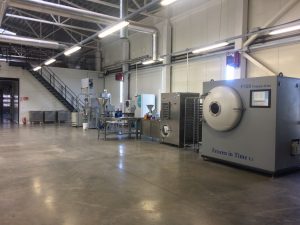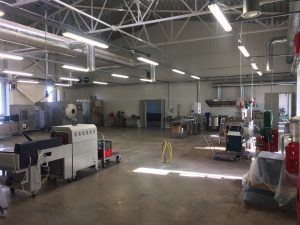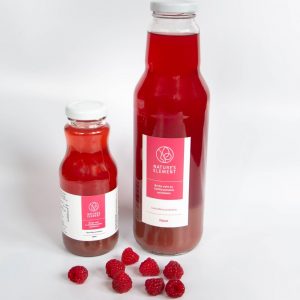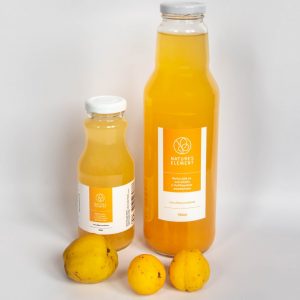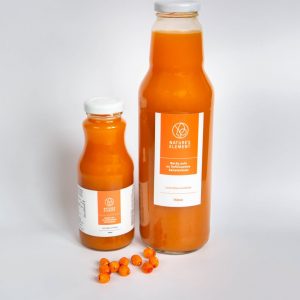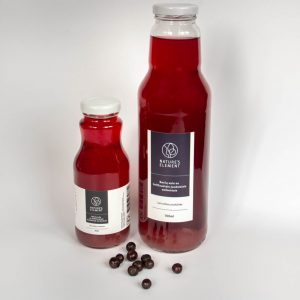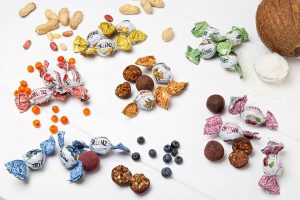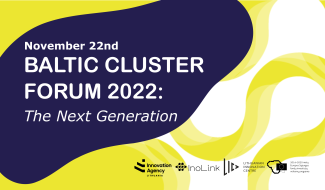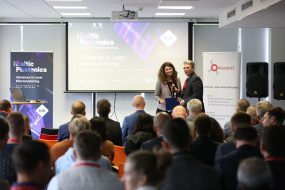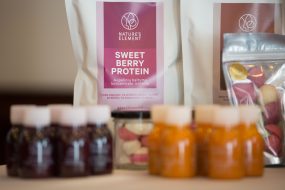A mature cluster supports Lithuanian innovative food manufacturers
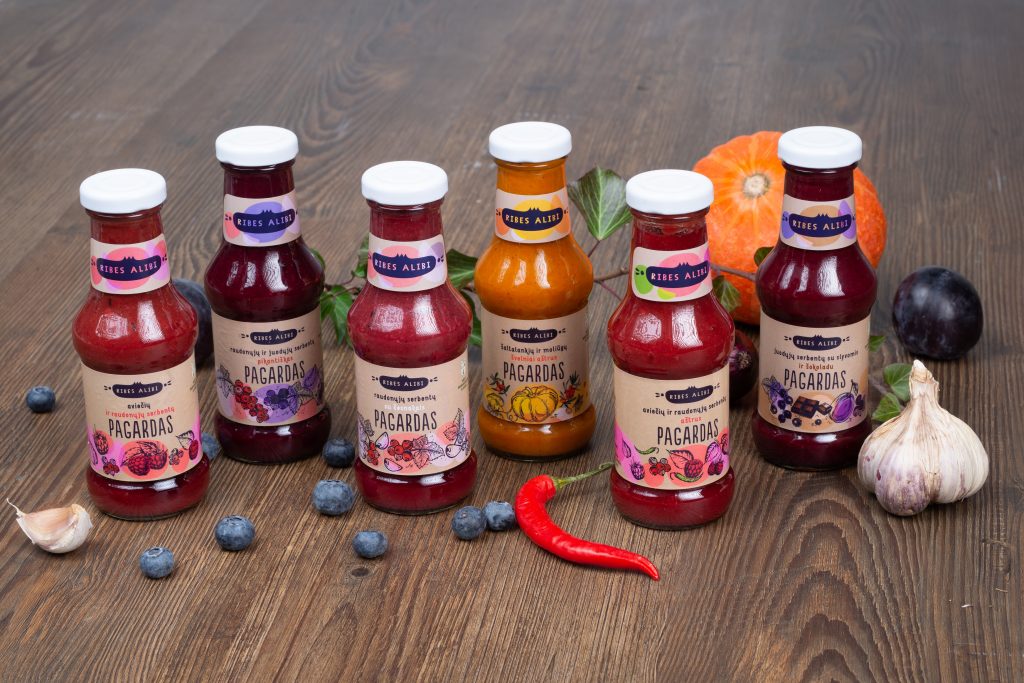
According to Gintas Kimtys, head of the Agency for Science, Innovation and Technology, participating in clusters companies acquires many opportunities. Synergies between cluster members accelerate knowledge transfer and technology deployment. They impact the development of new ideas and innovative products and help to attract investment or to take part in financial programs.
Innovation is essential to remain competitive
Founded in 2006, National Food Cluster currently contains 25 members. The key task of it is creating exclusive and innovative higher value-added products from local raw materials. In collaboration with researchers and with each other, member companies apply the latest food production technologies, expand their product line and develop new products.
Membership in NaMŪK promotes digitization, supports the circular economy principles and competitiveness as well. Thus, healthy and ecological products of the highest quality are already in demand locally and overseas.
“To maintain current position and compete worldwide, innovation is essential for traditional industries. Besides regular products, there is a growing demand for high-quality healthy ones based on innovative solutions. Thus, National Food Cluster with a bronze label of cluster management excellence is a great example of how science-business cooperation changes the Lithuanian food manufacturing industry,” says Jolita Razumienė, head of the Inolink project coordinated by the Agency for Science, Innovation and Technology (MITA).
Cluster leader dr. Česlovas Bobinas says that the partnership between science and business at NaMŪK takes place in both directions: “The science offers new ideas to companies, and entrepreneurs approach researchers with requests to find solutions to specific problems. A rare project does without both the Open Access Center and the Laboratory of Biochemistry and Technology of the Lithuanian Research Centre for Agriculture and Forestry (LAMMC)“.
A forge of the food industry startups
Researchers of the Laboratory of Biochemistry and Technology, headed by chief researcher prof. Pranas Viškelis introduces companies to innovative technologies, which are used as a basis for the development of exceptional quality products with increased biological value.
Open Access Center for Modeling of Fruits and Vegetables Processing Technologies helps to bring the latest scientific knowledge and research results into practice. The modern scientific base is designed to develop innovative food products and both fruit and vegetable processing technologies. Even though entrepreneurs are allowed to improve traditional products or create new ones by renting equipment, there is usually joint creative work going on here.
Fruits and vegetables are processed using innovative methods and technologies: lyophilization, subcritical and supercritical carbon dioxide extraction, enzymatic hydrolysis, and non-thermal processing (electroporation and high-power ultrasonic) that is applied in juice production. All this is already applied by Lithuanian innovative food companies.
Advanced technologies are also applied to solve problems of fruit and vegetable storage. Selecting the right temperature and controlling the gas composition in the chamber can slow ripening, cut storage losses, maximize the quality of fruit and vegetables, and extend the shelf life. This method is also applied for products in small, airtight packages.
All of the following: the Open Access Center, the laboratory, the expertise of the researchers, and the activity of the cluster members supply excellent conditions to shorten the path to the consumer and overcome it with minimal cost. This is crucial for both experienced companies and those starting to develop the business from the idea. Given that as many as 14 new companies were founded in recent years, the cluster is called the “startup forge”.
Oat drink entered Lithuanian market
The natural sweet drink of plant origin produced by JSC Innofoods has already entered the Lithuanian market. At the beginning of its path to the store shelves, the company applied for Inostart and received funding to research the development of a fermented beverage.
“We created the prototype in cooperation with the scientists of LAMMC Institute of Horticulture. Analysis of the product revealed that the drink contains phenolic compounds with antioxidant activity and prebiotics – fibers that may help the good intestinal bacteria to survive,” says the company’s CEO Emilis Monstavičius.
According to E. Monstavičius, support, sharing of knowledge and good practices are the main advantages of participating in the cluster. It is easier for high-added value-creating Lithuanian farmers and small food manufacturers to pursue similar goals together.
Science-based sustainable oil extraction technology
Raspberry seed oil is produced at the Audronė Ispiryan farm, which participates in the activities of NaMŪK through the Lithuanian Association of Berry Growers, Processors and Traders. The product, which won a gold medal at the exhibition “Rinkis prekę lietuvišką 2020”, stands out for its unique product composition and health benefits.
The product has been developed in cooperation with scientific institutions: the Lithuanian Research Centre for Agriculture and Forestry and Kaunas University of Technology (KTU).
“Researchers have concluded that supercritical CO2 extraction is the best way to obtain raspberry seed oil: no organic solvents are used for extraction, it is environmental-friendly and compared to other extraction methods the properties of the oil obtained are significantly better,” says the farmer. According to her, it is endeavoring to improve economic, environmental, and social indicators throughout the whole production process.
The production took its place on the shelves for gourmets
While creamy sauces made with starch-based thikers and synthetic additives dominate store shelves, food and beverage company Dangaus Pupos offers an alternative. The idea of producing the next generation of delicious and healthy sauces in family business arose while searching where to utilize locally grown traditional Lithuanian berries – currants.
After receiving funding under the Inočekiai measure and signing a cooperation agreement with the Institute of Horticulture of the Lithuanian Research Centre for Agrarian and Forestry (LAMMC), six different kinds of Ribes alibi spices were born. In 2020 the red currant sauce with garlic was awarded the “Lithuanian Product of the Year” gold medal.
The products are manufactured in compliance with all EU and Lithuanian regulations and hygiene norms, by heat treatment of the raw materials in such way that it would retain as many many valuable substances as possible. Farms are carefully selected for supply – it is in the company’s interest to cut the negative impact on the environment and to use as many locally grown materials as possible.
According to the company director Jūratė Pridotkienė, the services of the LAMMC Open Access Center are especially important for a company taking the first steps in new activities. Participation in the cluster helps to promote their products and increase their awareness in short circuit projects.
A new area of beverage production
Both companies and individuals are welcome in the cluster with ideas suitable for commercialization. Using the scientific base of Aleksandras Stulginskis University (ASU) prof. Vladas Vilimas conducted research and developed a birch sap collection device. The device suitable for industrial and individual use ensures the collection of sap in a container without contact with the environment, thus the raw sap can be processed without any filtration. Besides, the birch tree is minimally damaged by extracting the largest amount of product. The patent owner is V. Vilimas and the intellectual property of one of its components – the implant is protected by European design.
In cooperation between science and business, the whole new area of beverage production – the extraction and processing of birch sap has emerged. At present, the small cluster member Ekosula is engaged in the collection of sap that meets all ecological requirements. The above-mentioned devices are manufactured by them as well. The company used InnoVouchers measure and researched the ozone treatment to find an alternative to keeping organic birch sap obtained in industrial refrigerators.
Currently, the sap is purchased and processed by JSC Straikas. JSC Mėlynė enriches birch sap with lyophilized berry powder and according to LAMMC recommendations produces a healthy drink – a natural alternative to sugary soft drinks.
The idea of innovative technology arose at the fair
Well known in Lithuania “Serksno Honey” products often appear on the table overseas. Favored as a wait-and-see or a representative gift, honey with lyophilized berries is currently exported to Japan, the US, and the UK. Nijole Karpavičienė, the manager of JSC Mėlynė, and a farmer Regina Šerkšnienė met at the fair in 2015 and started brainstorming how to enrich the honey and make it more appealing to customers. Although there is currently a wide choice of honey with lyophilized berries on the market, they were the first in Lithuania to develop the technology for the production of such honey.
A family business conquers Europe
One of the oldest members of the cluster – the family business Rūta. JSC Rūta has as many as 245 employees. When creating functional food and sweets the confectionery factory seeks innovative solutions and chooses non-traditional, mostly local raw materials. In cooperation with the cluster members, it has already implemented 3 joint projects.
The latest product line Greenz snacks designed to meet the consumers needs for fast and valuable food was awarded at the exhibitions “Choose a Lithuanian product”, “Agrobalt”, “Siauliai”. Snacks were selected and presented in the news section at international exhibitions in Germany and the UAE. It is now exported to Denmark, Russia, Estonia, Poland and Latvia. The products are based on fruits, seeds, and nuts. Greenz snacks do not contain added sugars.
Another product developed by ASU and LAMMC together with science is actinidia berries coated in white chocolate. In sweets the maximum amount of vitamin C present in actinidia berries is preserved. This product was awarded at “Lithuanian Product of the Year” and “Agrobalt” exhibitions. Although actinide sweets are in high demand, the only bottleneck is not sufficient supply of raw material i.e. actinidia berries themselves.
“When the idea of a new product arises, one can find all the necessary partners in one cluster. It connects the whole food chain – raw material suppliers, processors, producers, and scientists – and makes communication much easier. We actively cooperate with LAMMC, which helps to carry out the necessary research and contributes to the development of new products. We have allocated about 300,000 EUR for R&D activities over the last 5 years,” says Rūta Gilaitienė, innovation manager of the confectionery factory.
The challenges of the 2020s and cluster initiatives led the company to digitize and create an e-shop.
The National Food Cluster (NAMŪK) participates in the InoLink project, which is implemented by Agency for Science, Innovation and Technology (MITA) together with the Lithuanian Innovation Center. The project aims to promote the merging of companies into clusters, increase the maturity of clusters, promote growth and international cooperation. The project and its activities are funded by the European Regional Development Fund (ERDF).
